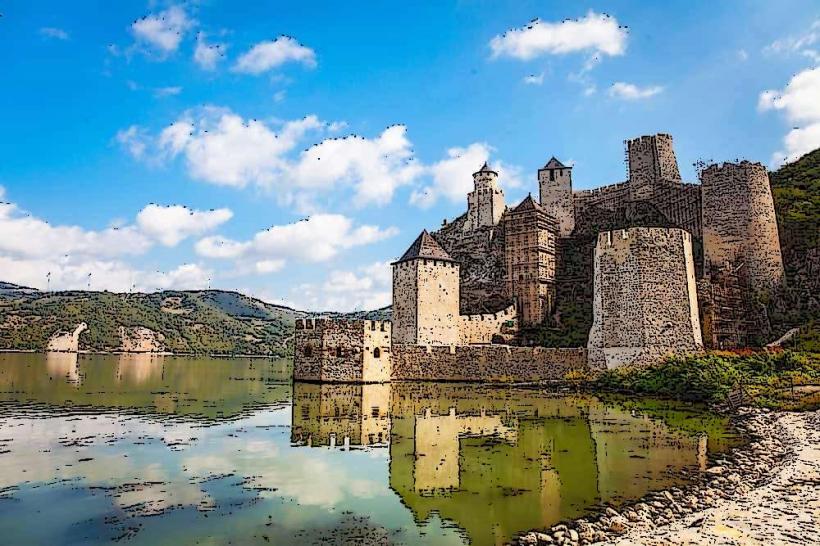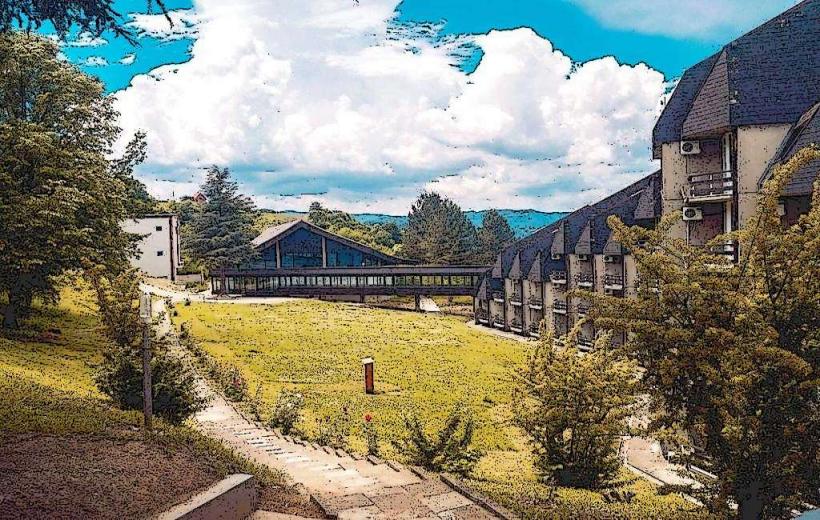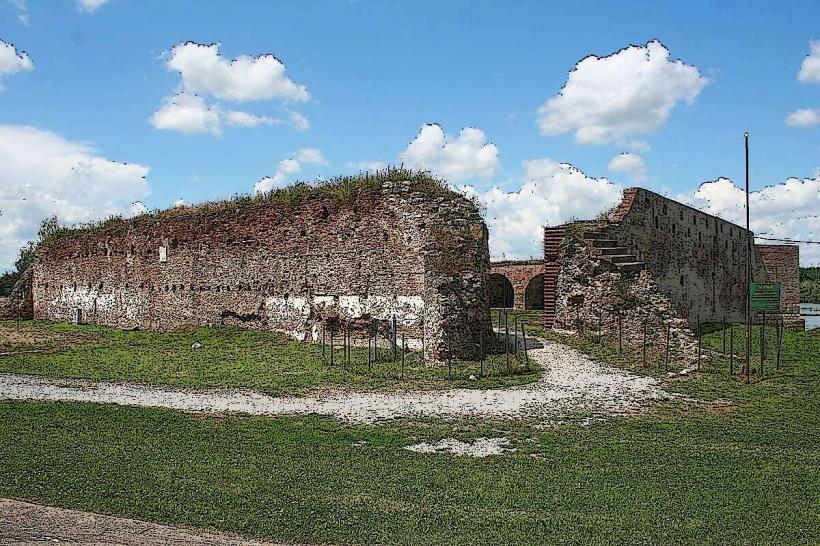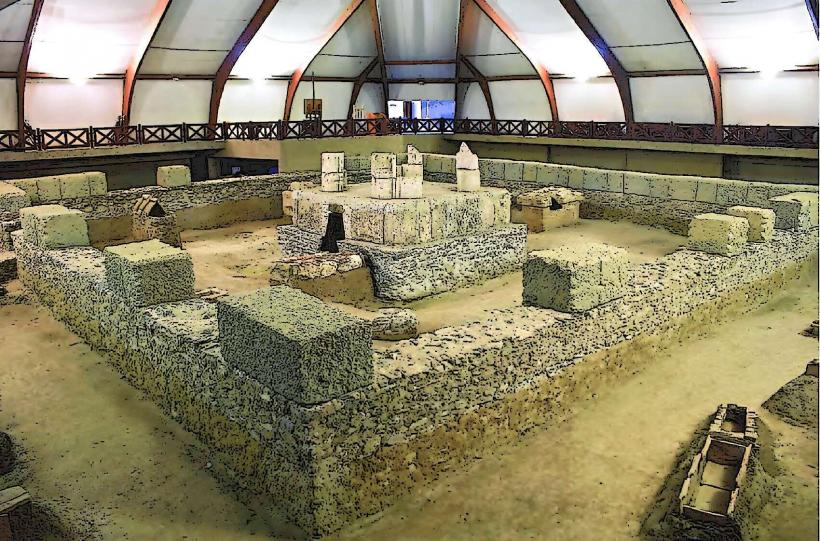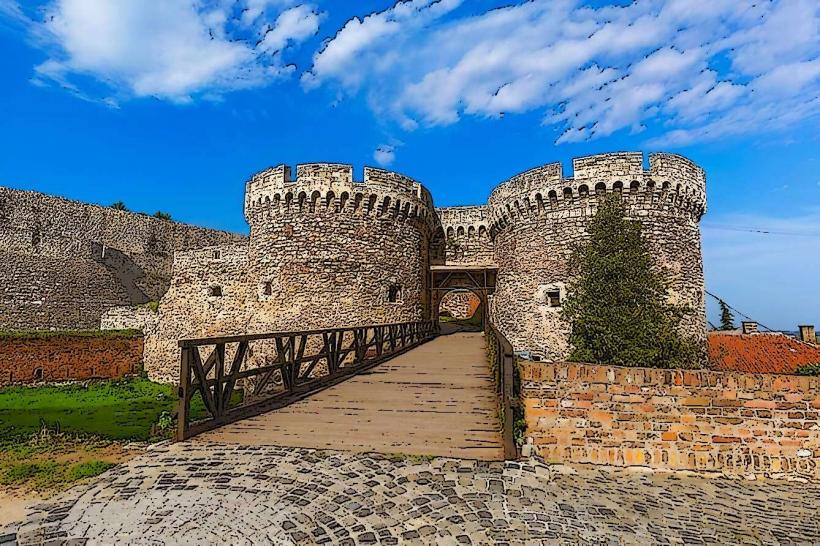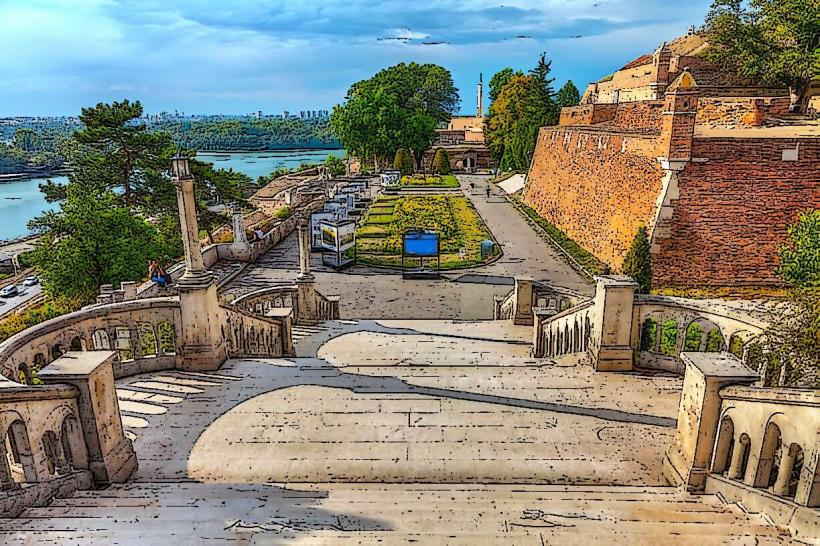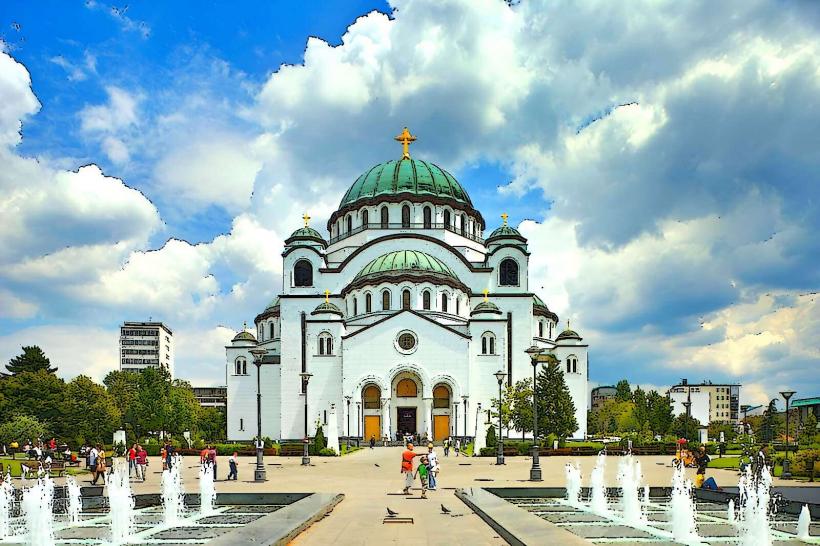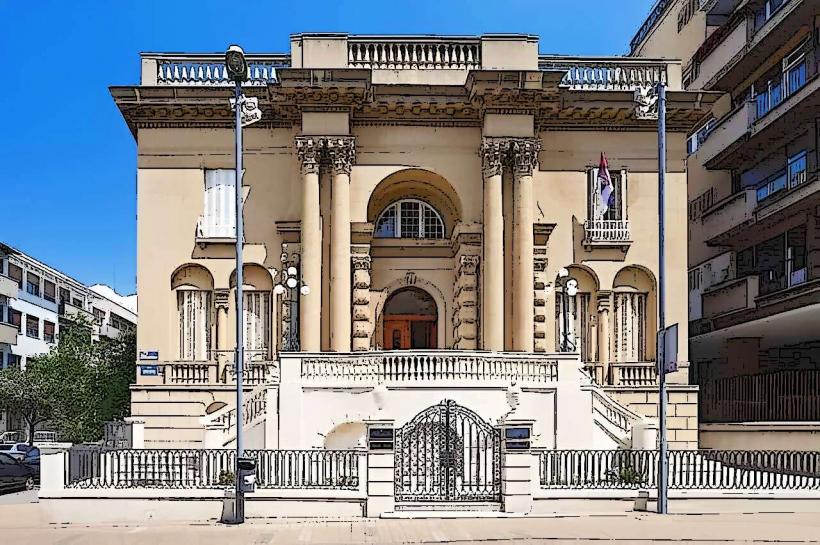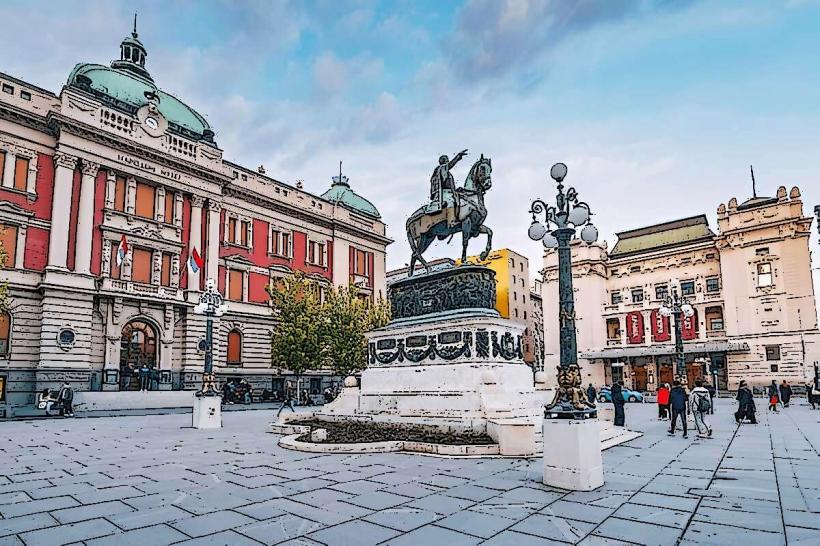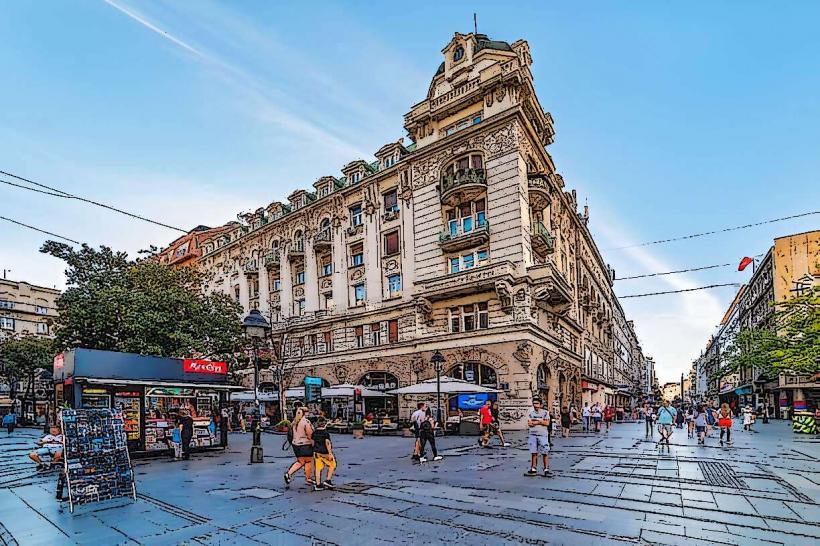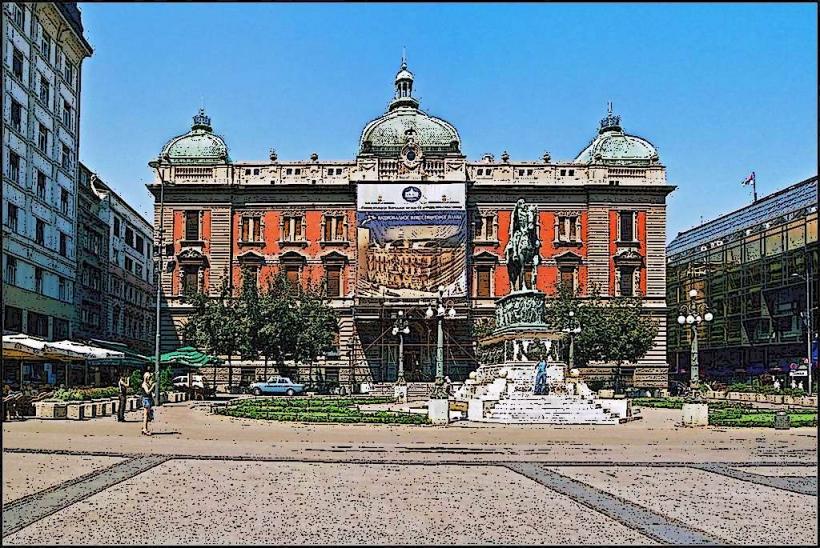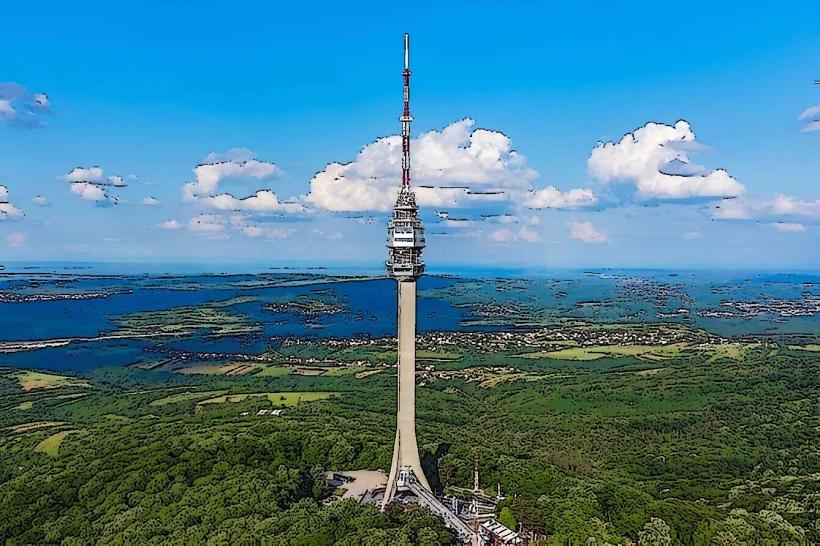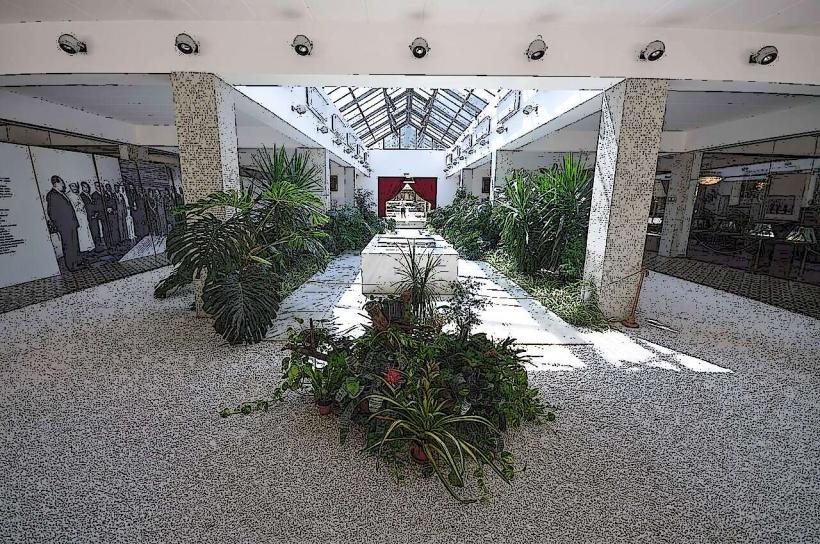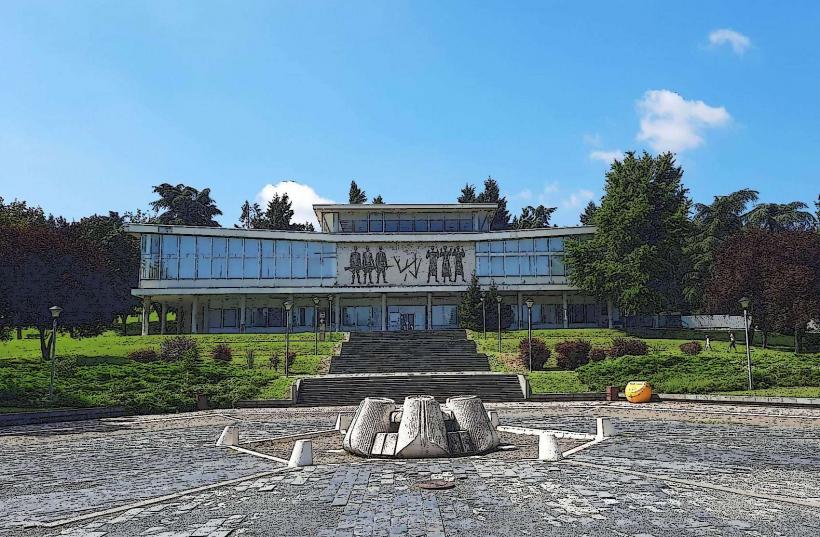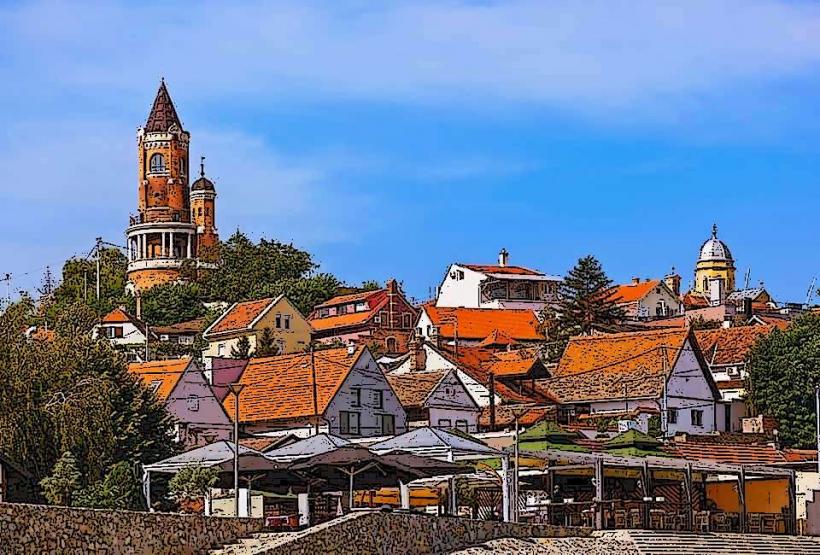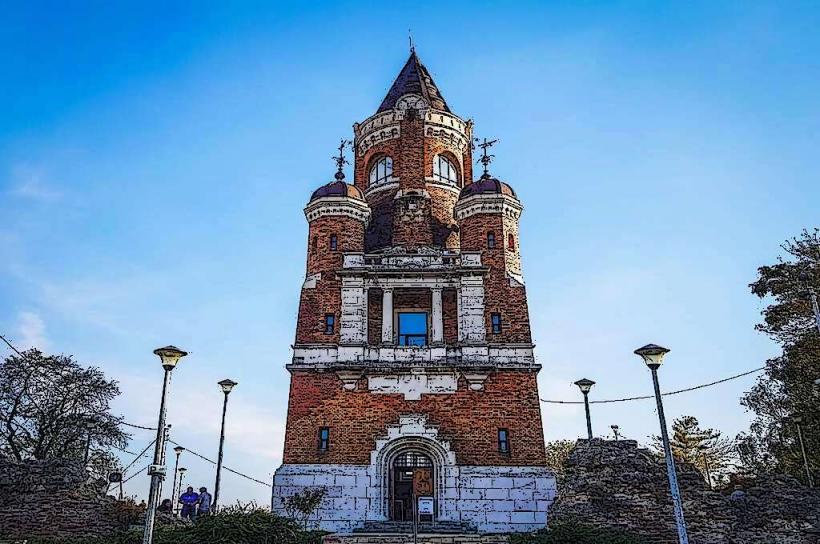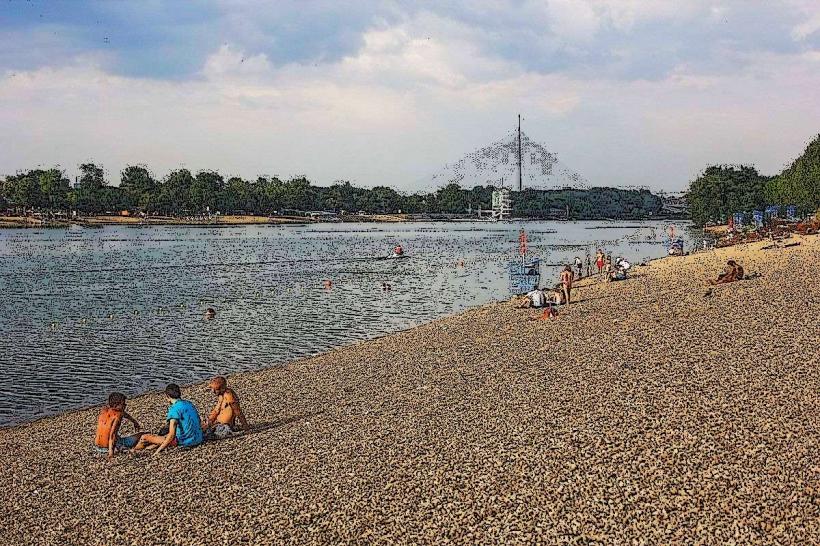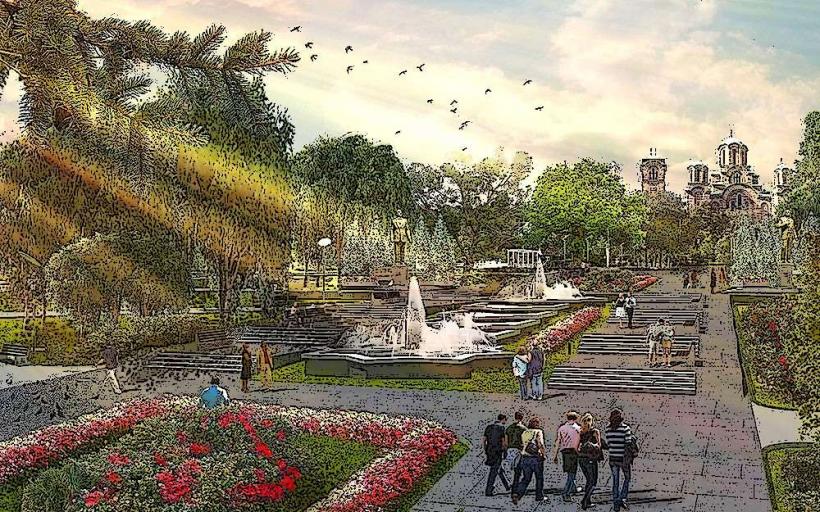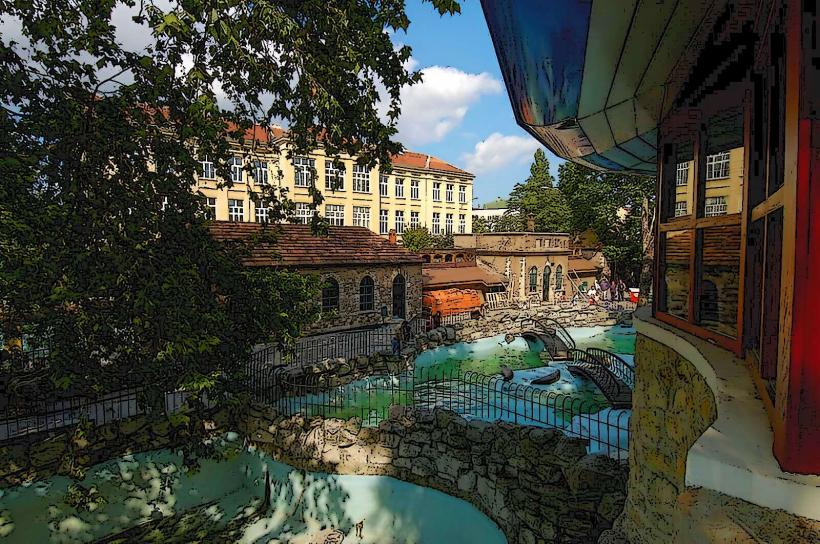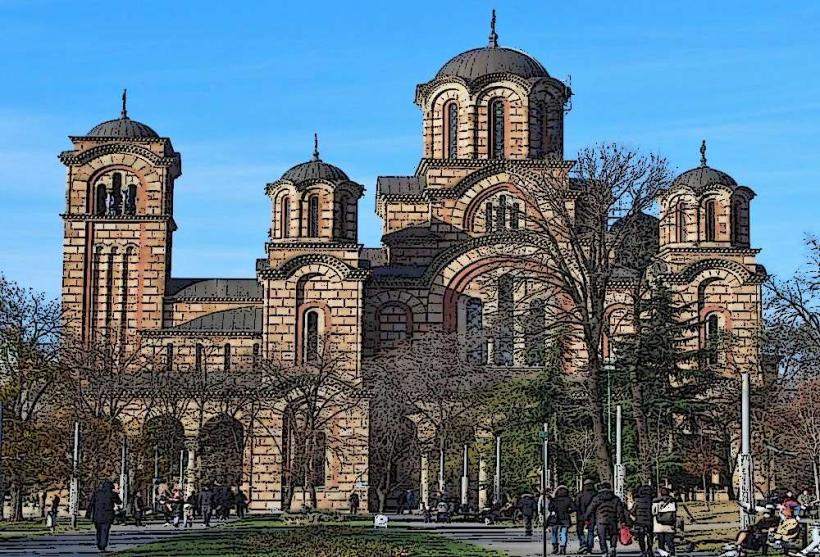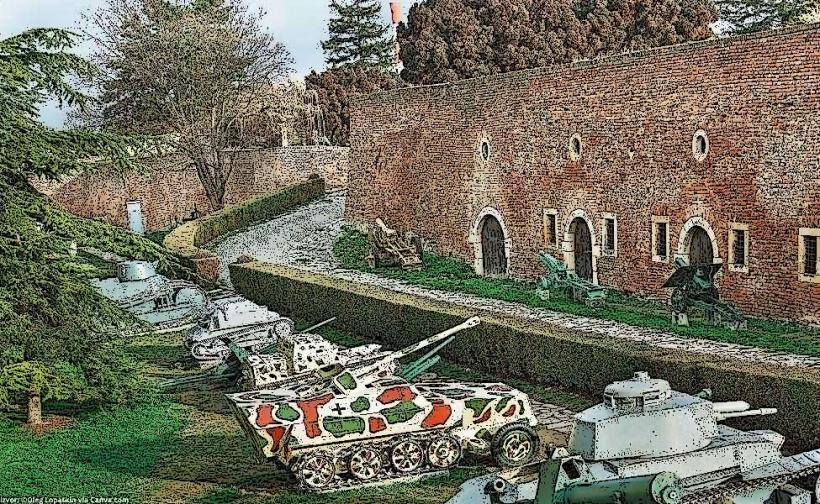Information
Landmark: Museum of Genocide VictimsCity: Belgrade
Country: Serbia
Continent: Europe
Museum of Genocide Victims, Belgrade, Serbia, Europe
The Museum of Genocide Victims (Serbian: Muzej žrtava genocida) is a significant museum in Belgrade, Serbia, dedicated to the memory and commemoration of the victims of genocides, particularly those who suffered during the World War II era. It serves as a cultural and educational institution focused on preserving the memory of those who perished in the atrocities committed by the Axis powers during the war, as well as other genocides throughout history.
Historical Context and Establishment
Founding and Purpose:
- The Museum of Genocide Victims was founded in 1964, initially as part of the broader efforts in post-war Yugoslavia to preserve the memories of the victims of Nazi occupation and other totalitarian regimes. The museum's creation came after World War II when many countries in Europe began to build memorials and institutions to remember the suffering caused by the war and its aftermath.
- The museum’s primary purpose is to educate the public about the consequences of genocide, honor the victims of these atrocities, and promote the values of human rights, justice, and reconciliation. It also aims to raise awareness about the importance of preventing future genocides.
Focus on World War II and the Holocaust:
- The museum has a special emphasis on the suffering of the Serbian population, particularly during the Axis occupation of Yugoslavia. This includes the Holocaust (the genocide against Jews, Roma, and other minority groups), as well as the mass killings of Serbs, Jews, Roma, and other ethnic groups at the hands of the Nazi and Ustaše forces.
- The Ustaše, a Croatian fascist movement, committed mass atrocities against Serbs, Jews, and Roma during their collaboration with the Nazi regime, especially in the Independent State of Croatia (NDH). This genocide, which involved concentration camps like Jasenovac, forms a significant part of the museum's collection.
Expansion of Scope:
- Over time, the museum's scope expanded beyond the events of World War II to include other genocides throughout history. It now also addresses the tragic events of the Bosnian War in the 1990s and genocides that occurred in other parts of the world, such as Armenia and Rwanda.
Museum Exhibits and Collections
World War II Exhibits:
- The core of the museum’s collection focuses on the atrocities committed during World War II, particularly the genocides that took place in Yugoslavia. This includes photographs, documents, personal items, and artifacts from the victims, as well as materials related to the Nazi occupation, the Ustaše regime, and the Axis powers.
- Visitors can explore exhibits that depict the mass executions, forced labor, concentration camps, and other forms of systematic extermination carried out by the Nazis, their allies, and collaborators. Special sections are dedicated to the Holocaust, with a focus on the suffering of the Serbian and Jewish populations, the Roma, and other marginalized groups.
Genocides Beyond World War II:
- In addition to the Holocaust and the World War II-era genocides, the museum also covers later atrocities such as the Bosnian genocide (1992-1995), with special attention to the events surrounding the Siege of Sarajevo and the Srebrenica massacre. These events, which were part of the Yugoslav Wars, led to the deaths of thousands of Bosniaks (Bosnian Muslims) and other ethnic groups.
- The museum also features exhibits on the Armenian Genocide (1915-1917), in which the Ottoman Empire systematically murdered an estimated 1.5 million Armenians. Materials documenting this tragedy are on display as a way to highlight the global nature of genocide.
- Other genocides, including those that occurred in Rwanda (1994) and Cambodia (1975-1979), are also covered in the museum's exhibits. The museum emphasizes the importance of remembering such tragedies to prevent future ones.
Educational Programs:
- The museum offers various educational programs and workshops for students and visitors, aimed at raising awareness of genocide prevention, human rights, and the importance of remembering historical atrocities. These programs are designed to foster a deep understanding of the consequences of hate, intolerance, and extremism.
- The museum also organizes lectures, seminars, and public discussions, often in collaboration with international organizations and academics, on topics related to genocide, war crimes, and the challenges of reconciliation.
Key Features and Architecture
Permanent and Temporary Exhibitions:
- The museum hosts both permanent and temporary exhibits. The permanent exhibitions primarily focus on the events of World War II, especially those affecting the Serbian and Jewish populations. These exhibitions are designed to help visitors understand the scale and horror of the genocides that took place during this period.
- The temporary exhibits offer the museum an opportunity to expand its focus on other genocides and related historical topics, often in collaboration with international museums and research institutions.
Memorialization and Artwork:
- In addition to its collection of photographs and documents, the museum features various artworks created by survivors of genocide, as well as memorial sculptures and artistic representations of the suffering endured by the victims. These art pieces are often poignant reminders of the human cost of war and violence.
Visitor Experience:
- The museum provides a reflective and somber experience for visitors. The exhibits are designed not just to inform, but to prompt thought about the importance of remembering the victims and ensuring that such horrors are never repeated.
- The museum also encourages visitors to participate in the broader conversation on human rights, peace, and reconciliation.
Conclusion
The Museum of Genocide Victims in Belgrade serves as an important institution dedicated to the preservation of memory for the victims of genocide and war crimes. Through its exhibits, educational programs, and historical documentation, it provides an essential space for reflection on the past and the ongoing need for vigilance in preventing future atrocities. The museum emphasizes the importance of human dignity, justice, and peace, urging visitors to remember the victims of genocide while encouraging a global commitment to the prevention of such horrors in the future.


